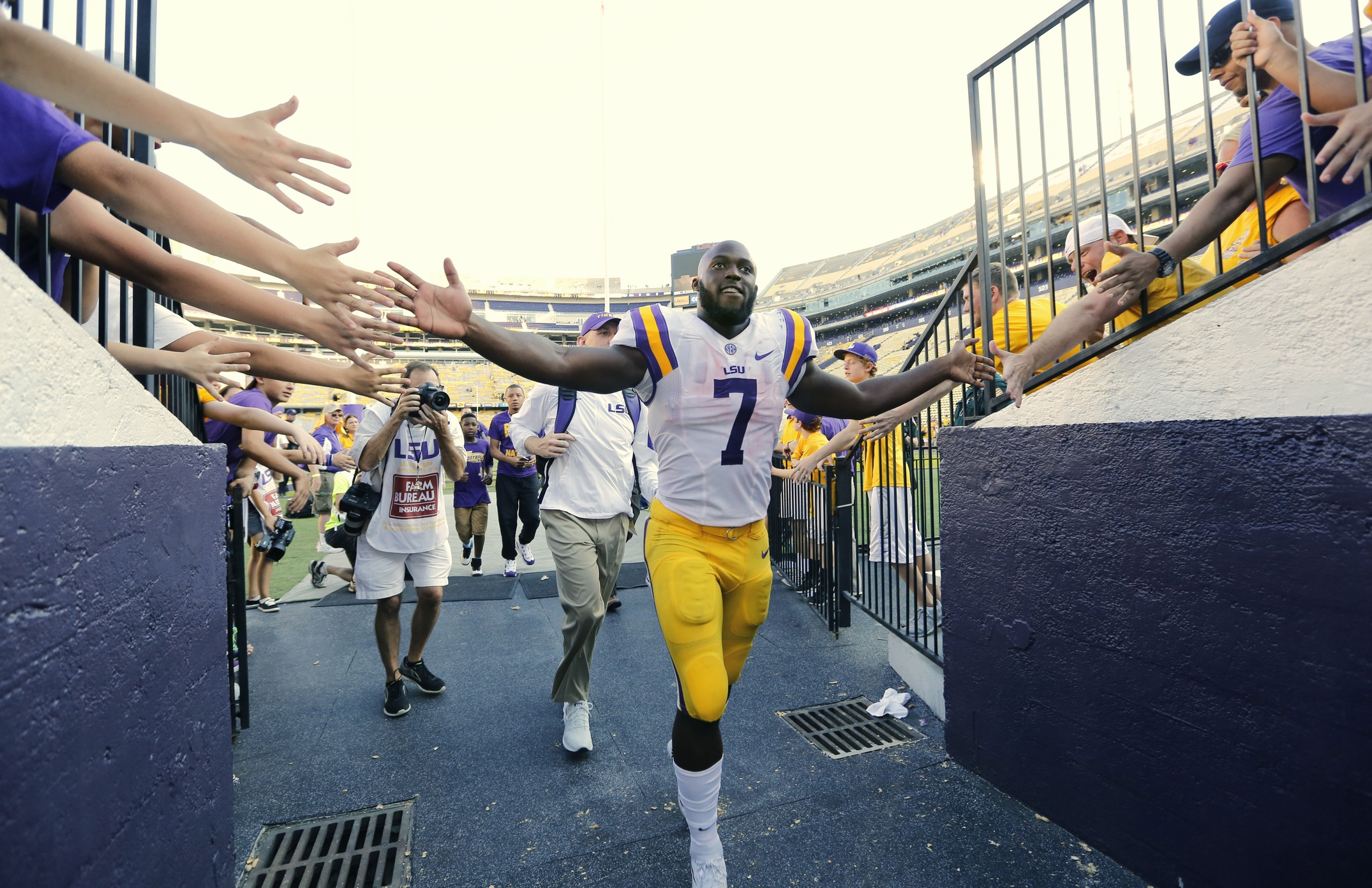
Feed Leonard Fournette the ball, and he proceeds to feed you with enough rewind-worthy highlights to fill your brain space.
That seems to be his intention this season, anyway. But what about the next?
While Fournette dominates opponents, headlines and everything in his path, it’s his career path that seemingly everyone is talking about. The debate is raging about whether Fournette should sit out his junior season to protect his investment (his body) in order to secure a high selection in the NFL Draft.
First, let’s sum up Fournette’s season in a nutshell. He’s on pace for 2,376 rushing yards, which would shatter the SEC’s single-season record by 485 yards. And that’s not including a potential SEC title game. Or a bowl game. Or maybe even two playoff games. Or the game that was canceled to start the season.
While Fournette surpassing Herschel Walker — who has said Fournette is better than he was in college — in the record books is in question, is there any doubt that he’s worthy of a top 10 pick in the NFL Draft?
So then wouldn’t it make sense for Fournette to save his tree-trunk legs and bowling-ball shoulders for the next-level athletes that will be chasing him with equal proportions, regardless if he has “a piece in place” for an insurance policy, according to coach Les Miles?
Maybe it makes sense for Fournette. But not for college football.
Maybe it makes sense for the agents that want to make every future seem as fruitful as Fournette’s. But not for the athletes to whom those futures belong.
The discussion now revolves around whether to change the NCAA’s draft eligibility rule that states college football players have to be three years removed from high school, opening the door for athletes to leave sooner.
Players have been bolting school early in record numbers. In the 2014 NFL Draft, a record 98 underclassmen entered, and a record 36 (more than a third) went undrafted. In 2015, that number fell to 84 underclassmen declaring and 24 going undrafted.
The reason for the decline was due to the NFL feeling compelled to tweak its rules in an attempt to lower the number of early entrees and better educate players to make informed decisions. A minimum of five underclassmen from each school are allowed to petition the advisory committee for feedback, and the players receive a grade of either “first round,” “second round” or “return to school.”
Imagine if the door is open even sooner? One would figure some younger players would rush out so quick they would tear an ACL in the process and defeat the whole purpose.
Even if the eligibility rule remains in place, how many future juniors would be influenced to stay out of action, maybe regret not playing one more year for their alma mater, forget about school and follow in Fournette’s footsteps only to learn the hard way that those imprints belonged to a once-in-a-couple-decades kind of athlete?
To be clear, it’s not Fournette’s future that can’t be trusted. His combination of speed, size, power and running instincts are even capable of turning the heads of those that spend their Saturdays doing something else, if those people exist.
What’s not to be trusted are the agents that say the sweet-somethings every prospect wants to hear before you never hear from them again.
Born and raised in Gainesville, Talal joined SDS in 2015 after spending 2 years in Bristol as an ESPN researcher. Previously, Talal worked at The Gainesville Sun.







